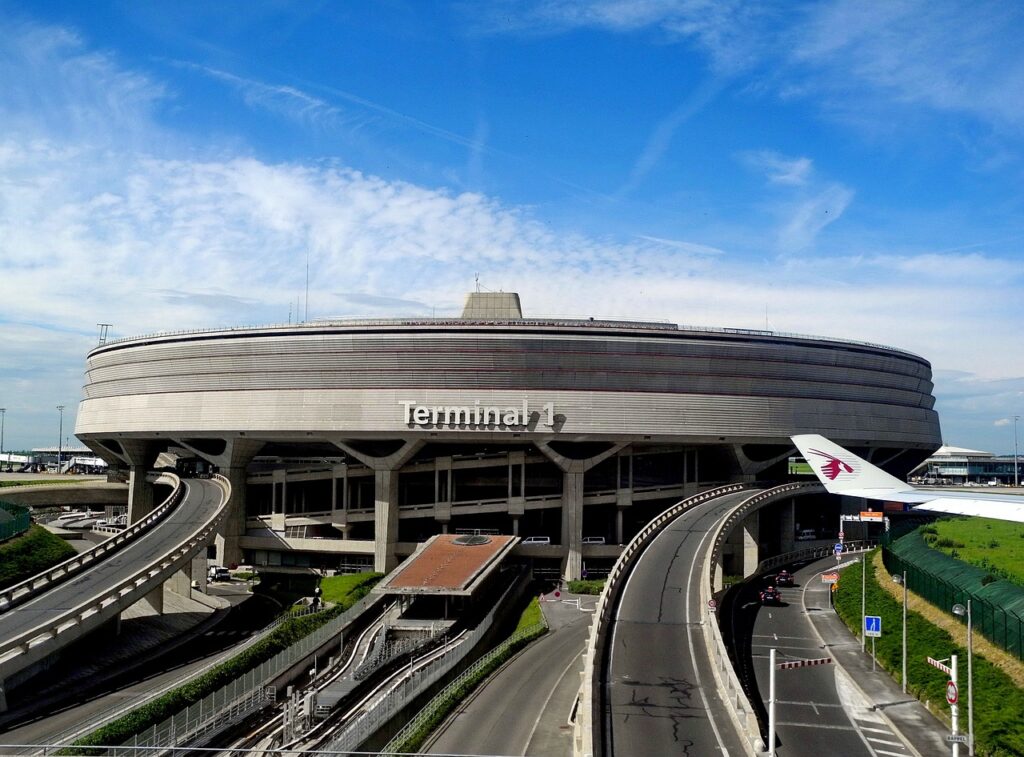Travel News: France bans short-haul domestic flights

Holidaymakers planning a trip to France this year should be aware that it is no longer possible to take short-haul flights from one French airport to another.
From 23 May 2023, France has officially banned all domestic flights where it would be possible to do the journey in under two-and-a-half hours by train.
The move comes in a bid to cut carbon emissions, since trains emit far less CO2 than planes.
The new rules mean that it will be impossible to travel by air from Paris Orly Airport (ORY) to various other major French cities, including Bordeaux (BOD), Lyon (LYS), and Nantes (NTE).
Connecting Flights Not Currently Affected
The good news is that this will not affect anyone flying from Wales who needs to change flight to reach their destination. Connecting flights are not affected by the new law.
However, if you are planning to spend some time in two separate cities or locations in France, you may have to take the train rather than a plane, depending on how far apart they are.
This is not the only major change to travel rules in the near future.
As part of the Schengen Area, non-EU travellers, including Brits, will need to register for the ETIAS France to visit the country when the online visa waiver platform is launched (currently scheduled for 2024).
The French government is also banning the use of private jets for short journeys. This measure is designed to keep things fair for travellers as well as combating climate change.
According to Transport Minister Clément Beaune, France would not tolerate the super-rich taking short-haul flights privately while the general public had to go without, due to the fight against climate change.
When do I have to take the train instead of a flight?
To substitute flights, train services are required to fulfil specific criteria. According to the new legislation, train services must be sufficiently frequent, punctual, and able to meet any necessary connections. They must also be equipped to handle a surge in passenger count.
For passengers making such trips, it should be feasible to undertake both the outbound and return train journeys within a single day, while still ensuring an eight-hour stay at their desired destination.
Currently, only 3 flight routes are affected:
- Paris Orly – Bordeaux
- Paris Orly – Lyon
- Paris Orly – Nantes
Why has France banned short-haul domestic flights?
The ban on short domestic air travel has been two years in the making.
France’s Citizens’ Convention on Climate came up with the idea as one of several ways to reduce the nation’s carbon emissions.
Given that France has the highest number of take-offs in the EU — nearly 85,000 in 2022 — it is little surprise that this measure was suggested.
The country also hosts a lot of private jets. It was responsible for the second-highest levels of emissions of any country in Europe in 2022, with over 383,000 tonnes of CO2 released into the atmosphere from private aircrafts.
France passed a new Climate Law in 2021, which made the ban on short-haul flights a reality. It finally came into effect on 23 May 2023.
There has been some backlash from those in the airline industry, with the Union of French Airports (UAF) and the European branch of the Airports Council International (ACI Europe) contesting the decision.
According to Laurent Donceel, interim head of industry group Airlines for Europe (A4E): “banning these trips will only have minimal effects”.
However, proponents of the bill had initially proposed banning flights where the train journey could be done in four hours rather than just two and a half.
French consumer group UFC-Que Choisir gave the following statistics in favour of the four-hour limit: “”On average, the plane emits 77 times more CO2 per passenger than the train on these routes, even though the train is cheaper and the time lost is limited to 40 minutes.”
France’s previous Minister for Transport Jean-Baptiste Djebbari said at the time: “We have chosen [two and a half hours] because four hours would isolate territories that are often landlocked, like the Massif Central.”
The European Commission conducted an investigation prompted by the protests of the UAF and ACI, but found that the plan was supported by EU legislation.
According to the European Air Services Regulations, a member state may, “where there are serious environmental problems […] limit or refuse the exercise of traffic rights, in particular where other modes of transport provide a satisfactory service”.
The plan was approved by the European Commission in April 2023.
Transport Minister Beaune said that this “is a major step forward in the policy of reducing greenhouse gas emissions.”
UFC-Que Choisir, while in favour of the ban, has also called for “safeguards that [French national railway] SNCF will not seize the opportunity to artificially inflate its prices or degrade the quality of rail service”.